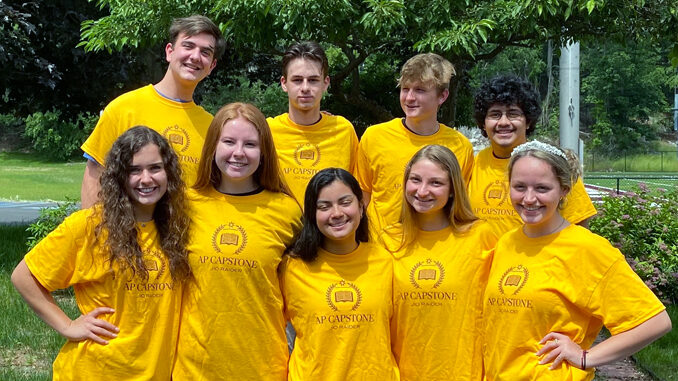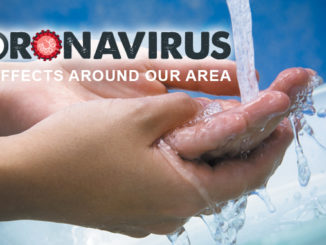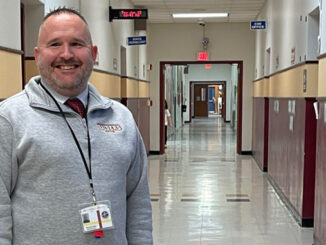
O’Neill seniors share new experience
By CLAIRE KOBYLSKI & ISABELLA VANZETTA
Two years ago, James I. O’Neill High School launched AP Capstone which is a two year program offered as an elective that is open to all students who are interested in exploring a topic or issue that interests them. This year, the first students who completed the program wanted to share their experience in order to raise awareness of this opportunity to all students in the Highland Falls/Fort Montgomery school district.
It was the summer of 2019. Isabella Vanzetta and Claire Kobylski, two rising juniors at James I. O’Neill High School, were faced with a momentous decision — should they embark on the long journey that is the AP Capstone course?
Being the first class that was offered this new course at O’Neill, they had no clue what to expect. However, the students took the chance to try something new and benefitted in more ways than they could ever expect.
What is AP Capstone?
AP Capstone is a two-year-long course offered by College Board that is broken down into AP Seminar and AP Research.
AP Seminar. This is the foundational course you will take for the first year. It is primarily teacher-led and allows you to develop the skills you need to become independent researchers in the second year during AP Research. By working in teams and participating in discussion-based activities, you learn how to collaborate with your peers and put aside personal biases to explore different perspectives. Although AP Seminar falls within the Social Studies Department, the course is truly a combination of varying subjects across multiple disciplines.
For example, some students in AP Seminar studied social issues in Hong Kong, while others explored the science behind concussions in football. Typical classwork may include reading and analyzing articles, researching topics of interest, learning how to dig deeper into the significance of issues, and preparing both independent and group presentations. Equipped with a deeper analysis and a more comprehensive understanding of their topics of interest, students learn to develop their own perspectives and evidence-based arguments.
AP Research. The collaboration, research, analysis, and presentation skills that students developed in AP Seminar now prepare them for their year-long independent research study in AP Research. Students use the summer before AP Research to become familiar with potential fields of interest for their research.
From the reproductive rights of women, to the stock market, to how music affects student success, to religious freedom in the US, students truly have the creative freedom to design a study on any topic they desire. These were only a handful of the unique and interesting topics explored by O’Neill AP Research students, but the possibilities are truly endless. Once your topic is chosen and narrowed, you form a research question, choose a method of study that will best answer your question, explore the existing professional conversation around your topic, and finally, collect and analyze your data. In the end, this process will result in an academic paper and independent presentation before your classmates and teachers, which will be turned in to the College Board and constitute your AP score.
Although guidance and feedback from your teachers and peers are still present in AP Research, the course is significantly more independent than AP Seminar. As opposed to AP Seminar where class time is spent collaborating, in AP Research students use their class time to work independently on their own studies when they are not peer-reviewing. By working independently, students learn how to effectively manage their time to ensure they are staying on track with the timeline of their project.
Why Should I Take AP Capstone?
We agree that taking AP Capstone was one of the best decisions we made in high school. The workload can surely feel daunting and overwhelming at times, but the skills you acquire as a student, researcher, and leader make the course worth it.
“One of my favorite things about AP Capstone was that it was focused on my personal growth as a student and researcher, rather than a numerical grade. As long as we worked hard in class, our AP Capstone teachers at O’Neill ensured that we would never have to stress over a grade,” Kobylski says.
We are positive that we are both better prepared for college courses and future research studies after taking AP Capstone. We now feel confident in writing annotated bibliographies and literature reviews, speaking and presenting in front of larger groups, navigating databases, analyzing and synthesizing sources with different perspectives, and putting aside their biases to present all sides of the issue at hand.
Not to mention, AP Capstone and our independent research experience surely provided us with a competitive edge in the college application process. We encourage students to take AP Capstone if they are interested in breaking away from the normal class format, enriching their educational experience, having the upper hand in the college application process, learning how to collaborate with others, and becoming stronger researchers and overall students. This course has taught us so much, and we know that it will surely provide the same for you.
“Take AP Capstone, you will not regret it!” Vanzetta concluded.



